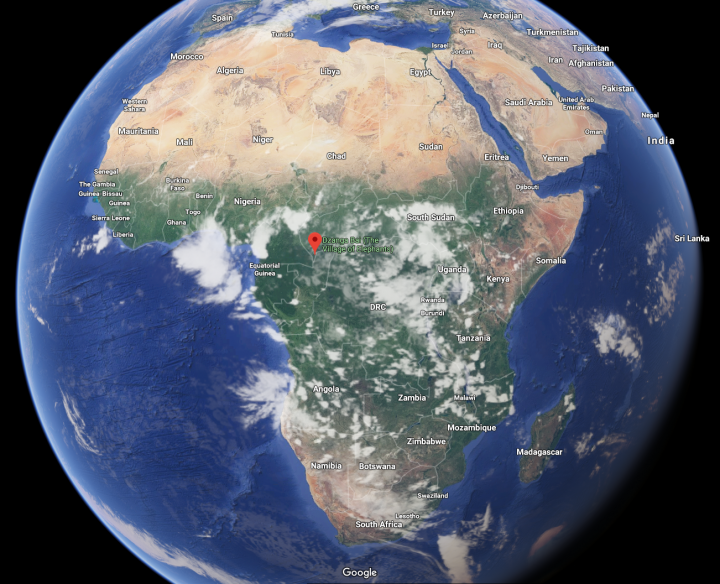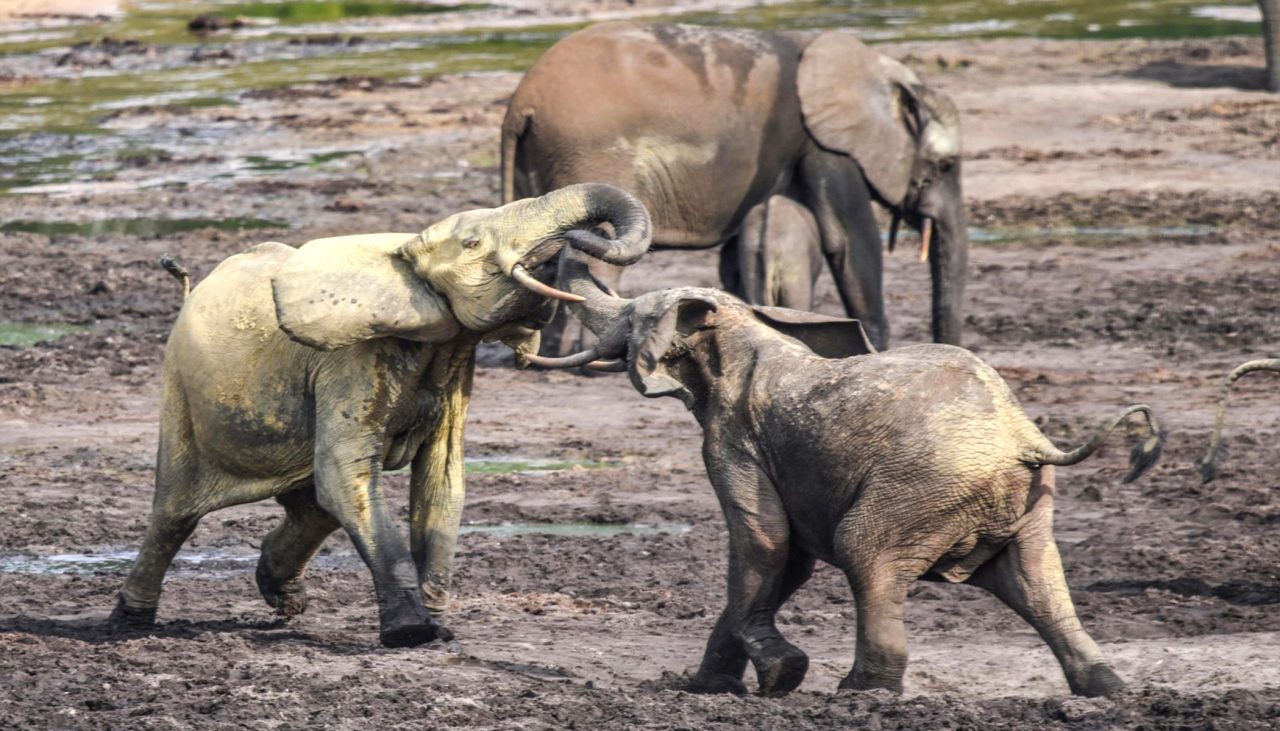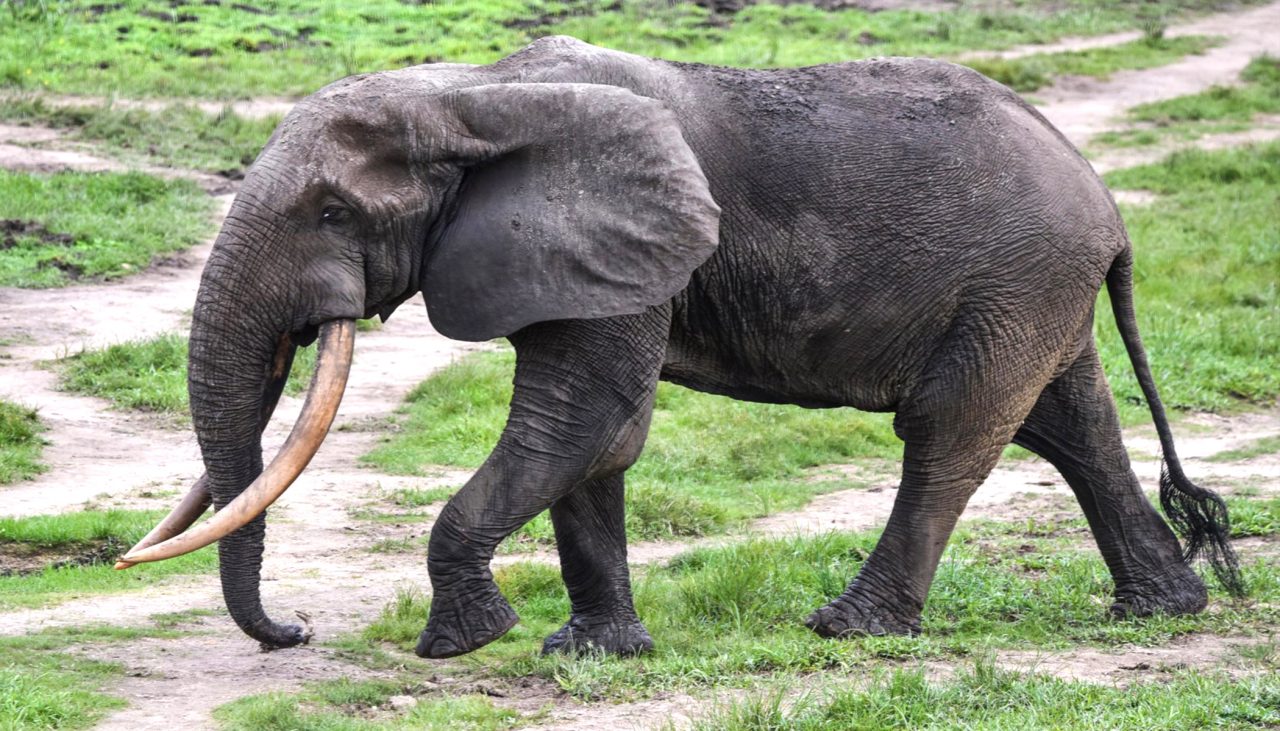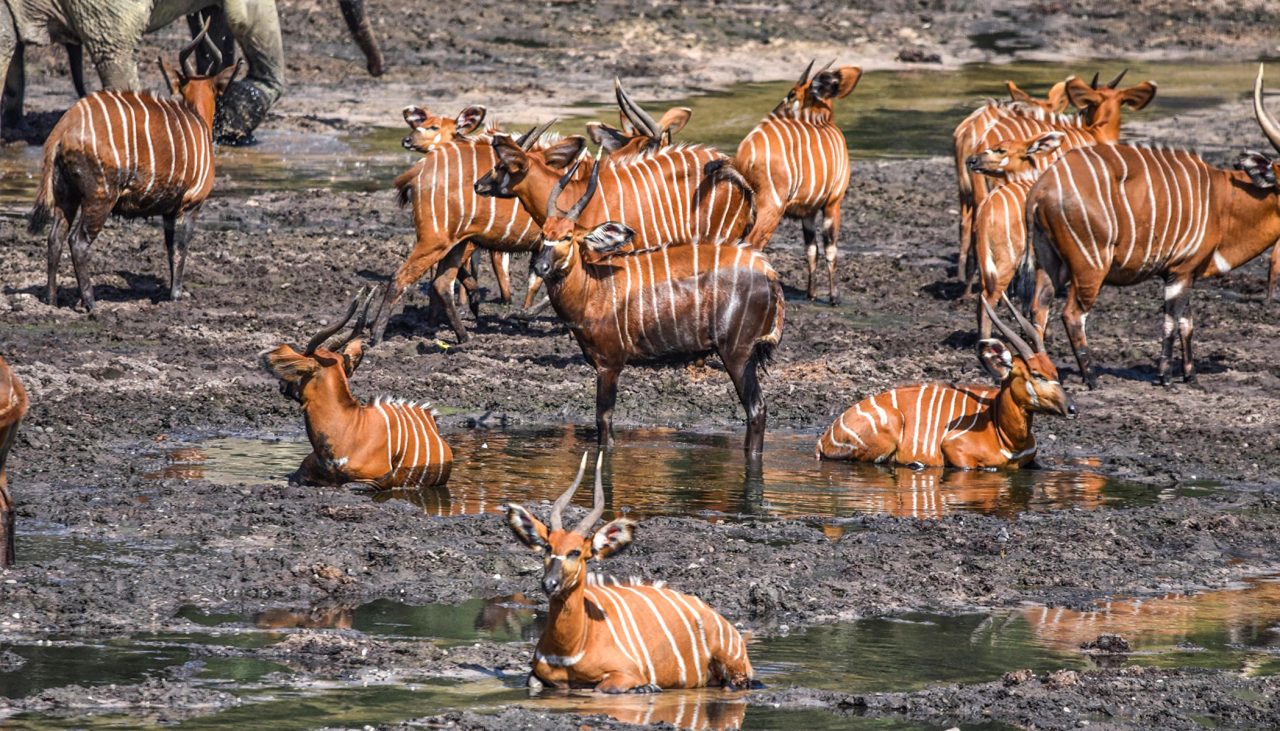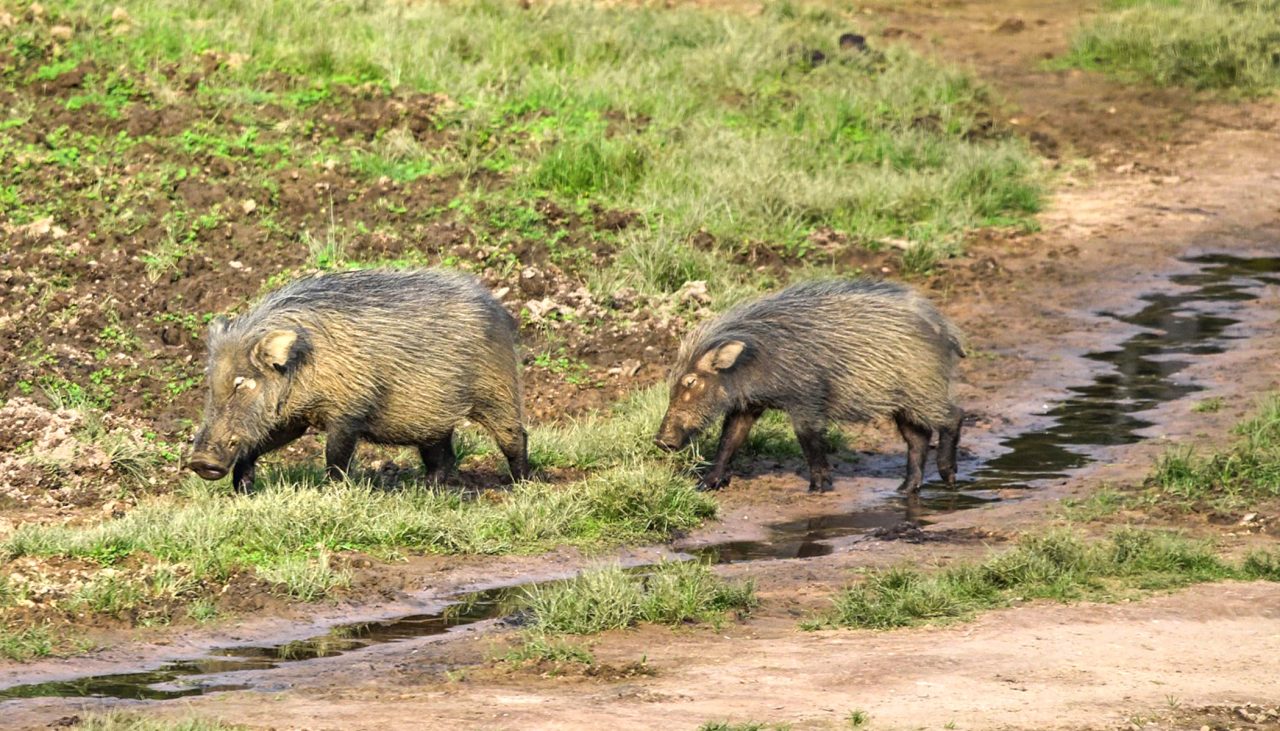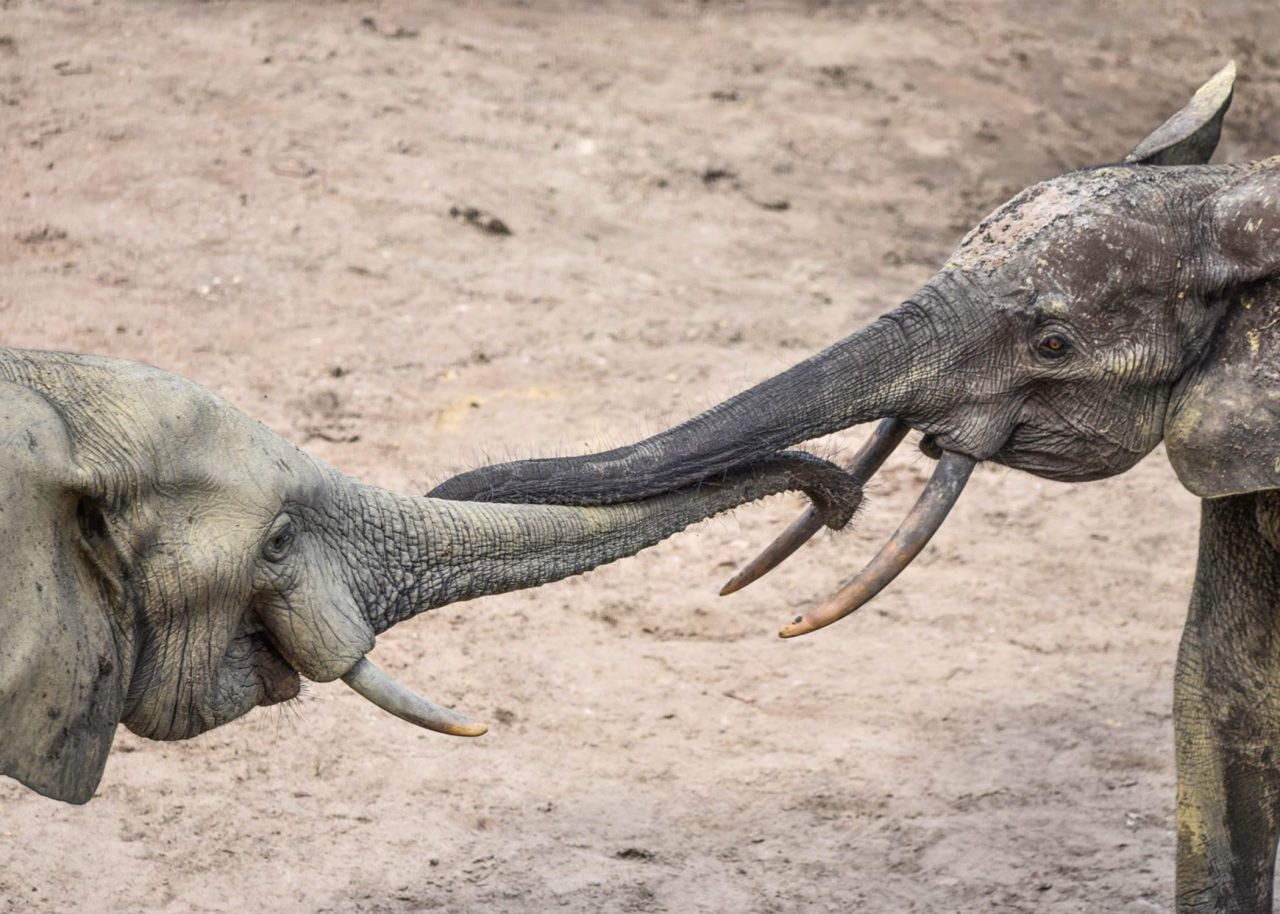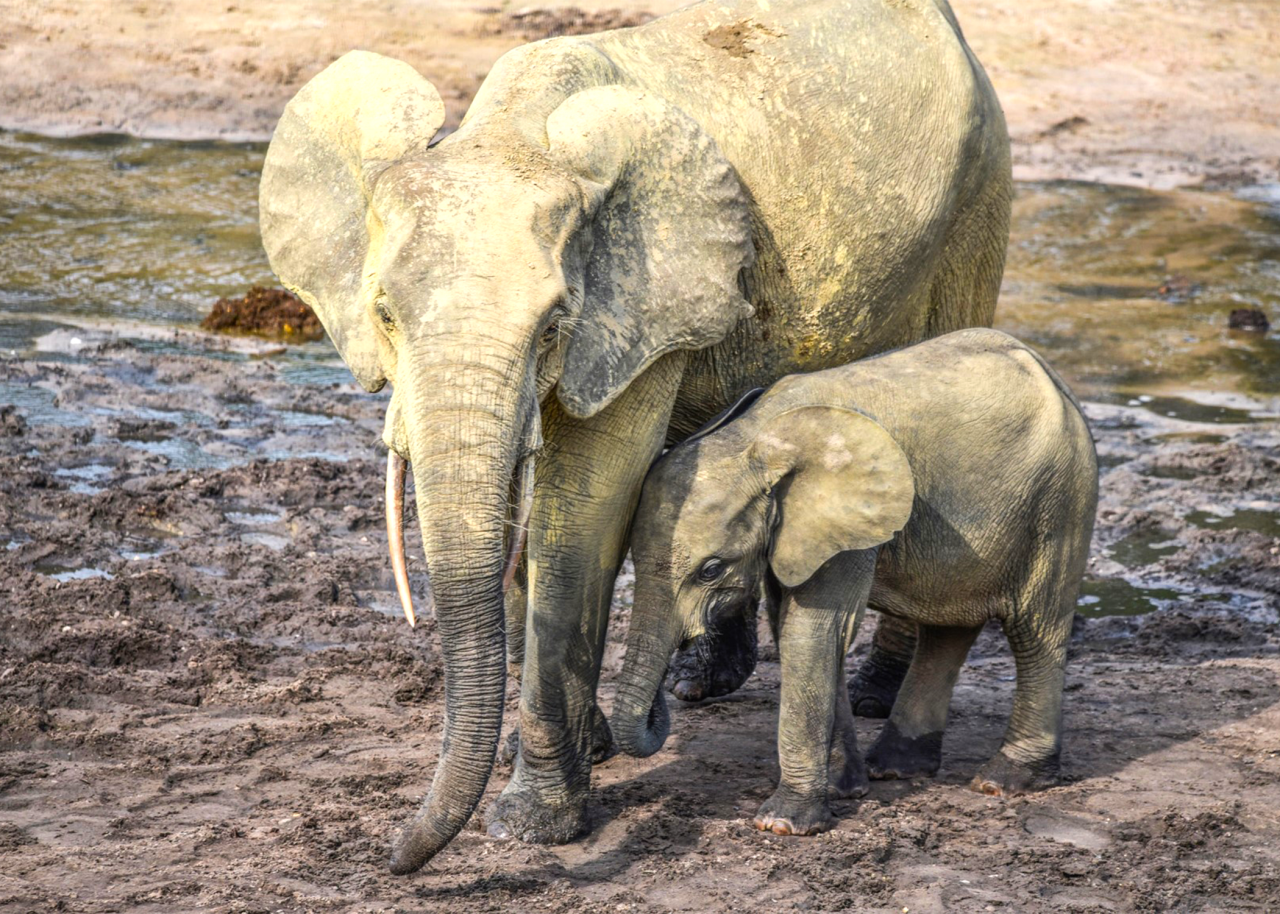Ana’s Field Notes from Dzanga Bai
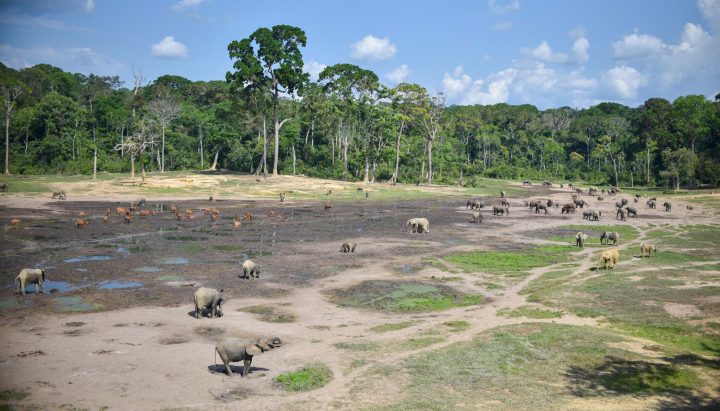
Ana Verahrami, a Research Assistant with our Elephant Listening Project, recently embarked on a field trip to study forest elephants in Central African Republic (CAR).
Camp life is going great! The remoteness of the location has definitely been an adjustment, as has been taking a shower with a bucket and learning to watch out for scorpions (and elephants) when I brush my teeth at night. My hut has more space than I (and the seven or so giant spiders that inhabit my roof) can use, but I am working on making it a bit more homey for all eight of us over the next several months. A tarp has been fastened on the roof, so for now, the rain is staying out which is a relief. Cooking over a small fire is a process, but I am now quite good at starting and tending to the fire. We were boiling water to drink for the first few days, but have since upgraded to a luxurious water filter. For now, we don’t have to drink boiling hot water that, as I like to say, tends to have a bit of “crunch” to it.

Mother and calf at a mineral pit together 
Start of a fight!
Mornings are spent doing laundry, entering data, cooking, filtering water, and wandering around seeing if I can get a network connection for my satellite phone. After morning chores are done, the highlight of my day begins – we go to the bai (forest clearing)!
Our walk to the clearing is around 30 minutes to the bai and around 45 minutes back. For forest distance, we are quite close to the site. The first part of the walk is through a stream that can be a few inches below my waist at certain points. I am currently not experienced enough to always know where these parts are, so on occasion, I will give the Bayaka trackers a good laugh as I suddenly find myself dropping deeper into the water. Our walk back to camp in the late afternoon is a bit longer because we take a different path that goes around the stream. We do this to avoid any elephant encounters as they begin to hang out in the stream during the early evening. The rest of the walk is through the forest and is always led by one of the Bayaka trackers. Right now, we have four working for us – Azubae, Wasi, Mopeawa, and Boonga.
Regardless of who is leading the walk that day, they are always wearing flip flops and they are carrying a machete. Their sense of the forest is astounding. They can hear an elephant softly foraging from meters away, which may not sound that impressive, but actually really is when you think about how loud the forest itself is. We had two close encounters with elephants in the forest on our first walk to the bai, but simply retraced our steps back to a safe distance away and waited until the Bayaka heard the elephant move away. Needless to say, I completely trust the trackers and feel quite safe with them in the forest. And more than that, I can already feel myself learning so much about the forest from them. They always know which tree a fruit or a leaf comes from, what species of primate is jumping through the canopy above us, and have already taught me a very important life lesson: never, ever step on a colony of army ants.

Other visitors of the bai: Bongos 
Other visitors of the bai: Giant forest hogs
You can notice a change in vegetation as you approach the bai, and when I first noted it and knew we were close, I felt myself completely overloaded by emotion. I have no words to describe how I felt the first time I climbed to the top of the platform and looked out at the 120+ elephants before me. And day after day, I still feel this when I arrive at the bai. It is the most magical place I have ever been, and likely will ever go.
I can feel myself understanding the elephants a bit more. I felt so excited just a few days ago when I realized I was able to recognize family groups and track a bunch at the same time. And I will never tire of listening to them! Hearing their rumbles and roars in person has made me feel so blessed. But with all of this respect and admiration, comes a great worry that I will not always be able to respect and admire them as I am doing right now.

Two elephants ”trunking” 
Mother and calf at the bai
A few nights ago, we were getting ready for bed at camp. It was pitch-black out besides the twinkling stars above and the flickering lights of fireflies floating by. As I finished brushing my teeth, I heard a gunshot. And after that, a lot of wailing from what sounded like an incredibly distressed elephant. The ecoguards nearby said that this was probably someone taking down an antelope, which is still technically illegal within the boundaries of the park. And maybe it was an antelope. But hearing that sound and experiencing what it was or even could have been was the worst experience I have had in a very long time. I felt utterly helpless in that moment. I could not run into the forest to look for an armed poacher for fear of him and his gun, and also of the elephants that continued to roar and scream throughout the night near our camp.
This gunshot put things into perspective for me. It’s not as if I had some naïve dream that I would go live at camp and nobody would ever shoot an elephant in the park ever again. But seeing a spectrogram or hearing a recording of a gunshot, and hearing the real thing in person is a very different experience. So while I know that there are some really good and some really bad days ahead of me, knowing why I’m here and that I can make an impact is enough motivation to get me through it all.
Till next time.
– Ana
